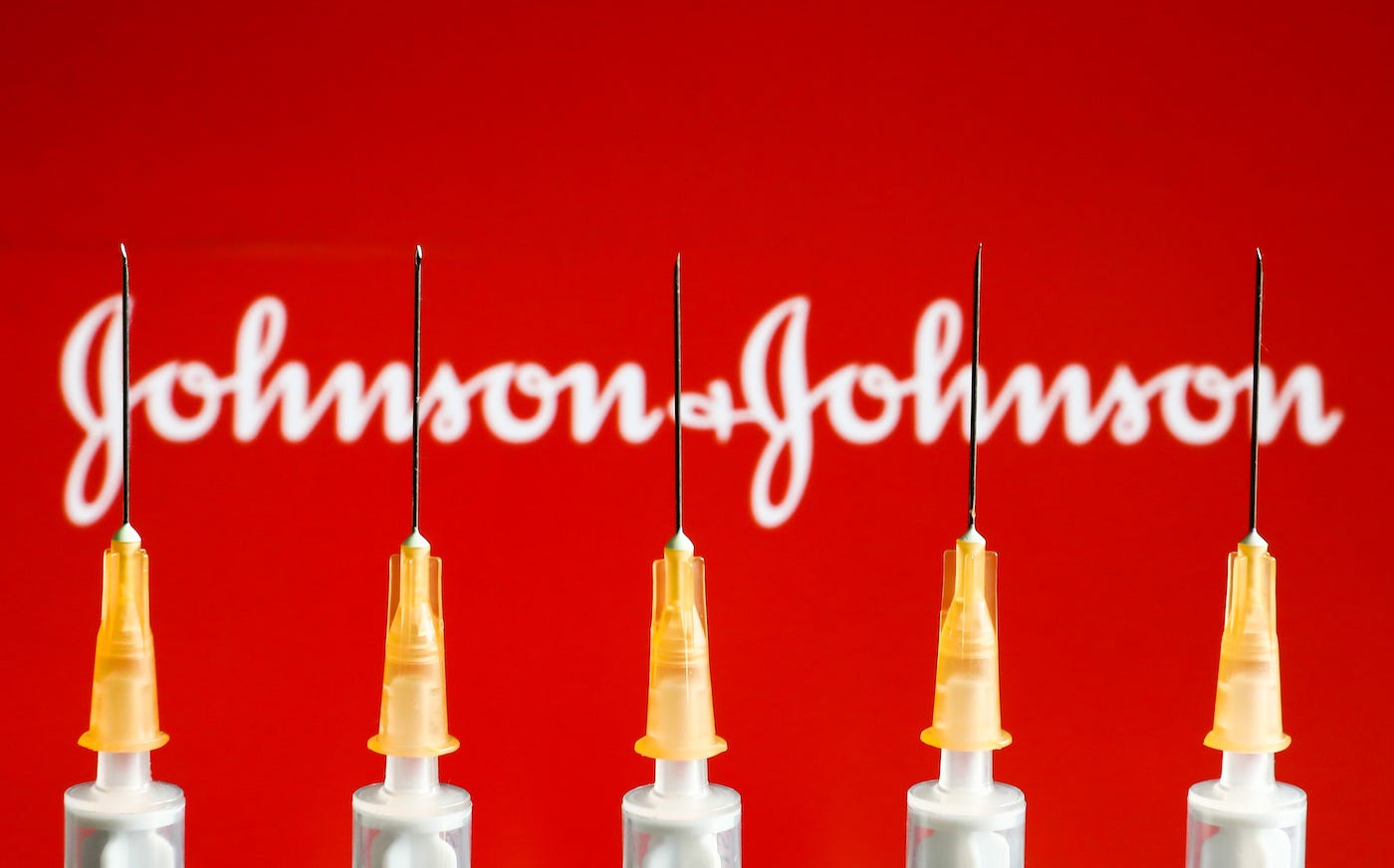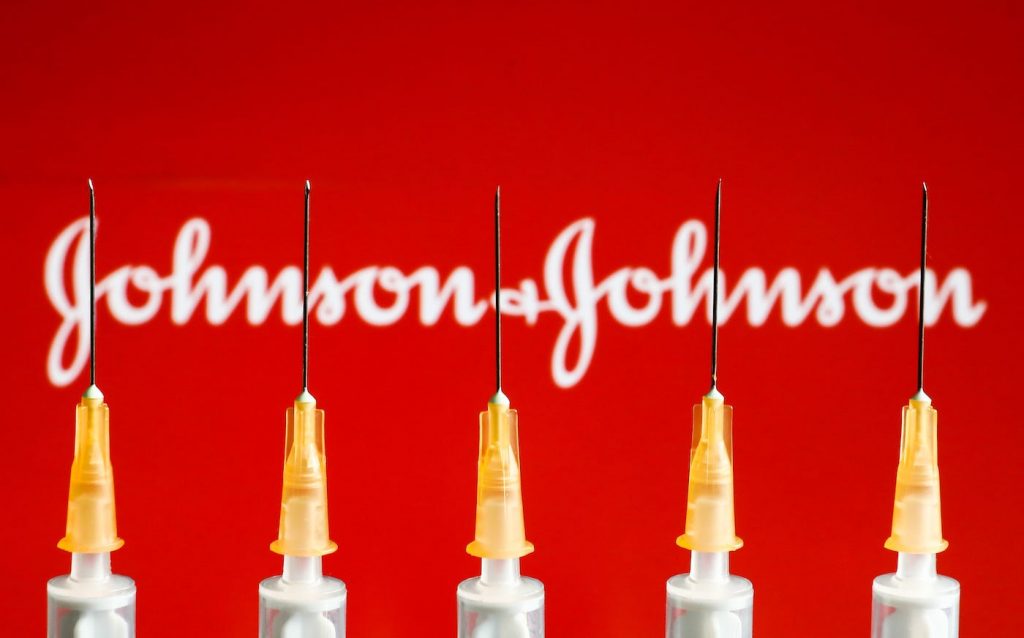
Jakub Porzycki/NurPhoto via Getty Images
- Some people who got the J&J vaccine are seeking mRNA booster shots.
- The CDC and FDA don't recommend mixing vaccines, but experts say it can't hurt.
- Early data on mixing vaccines suggests it could trigger a stronger immune response.
- See more stories on Insider's business page.
As the Delta variant becomes the dominant COVID strain in the US, Americans are scrambling to strengthen their protections against the coronavirus.
For some people who got the single-dose Johnson & Johnson vaccine, that means getting another shot just in case.
However, the FDA and the CDC have not recommended doing so. Leading infectious disease expert Dr. Anthony Fauci said there's no data yet to support it.
"Even though individual physicians would be doing that, from a clinical trial basis there's no real fundamental scientific reason to do that right now," Fauci said when asked about J&J boosters in a White House press briefing. "When those data become available, you will see recommendations change."
J&J data suggests the shot is effective against variants
Public perception of the J&J vaccine has been marred by concerns about blood clots and manufacturing snafus. But from a practical standpoint, the vaccine works.
J&J has stood up against some worrisome variants, including the highly transmissible Delta variant.
The company found its vaccine produced a "strong" antibody response to the variants, according to two small, not-yet-peer-reviewed studies. It concluded that J&J vaccine recipients do not need a booster - and, for now, the CDC agrees.
"Right now, we have no information to suggest that you need a second shot after J&J, even with the Delta variant," CDC director Rochelle Walensky told Today.
Some people are getting extra shots anyway
Some people are still seeking boosters. Select public health experts are among those "topping off" their J&J vaccines with a dose of Pfizer or Moderna.
Angela Rasmussen, a virologist at the University of Saskatchewan, tweeted on Tuesday that she got a dose of the Pfizer vaccine to supplement the J&J vaccine she received in April. She said she was spurred by the Delta variant, and the history of successful vaccine boosters before COVID-19.
Other virus experts agree that, generally speaking, the strategy of mixing different kinds of shots to bolster disease protection can work well.
"You would expect some combinations to be: firstly safe, and to give - at minimum - comparable and quite possibly superior efficacy to some of the standard two-dose regimens," immunologist John Moore told Insider.
Data from early studies about mixing vaccines have been promising. A recent study in the UK suggests that mixing the Pfizer and AstraZeneca vaccines yields a greater immune response than two doses of AstraZeneca's shot.
Another study in Spain found that mixing doses successfully produced a boosted immune response. However, the study has not yet been peer-reviewed, and those preliminary results were announced in an online presentation.
Getting a booster shot in the US may be logistically difficult
Twitter users who already had their minds made up about getting an mRNA shot to follow up their J&J dose had some logistical questions about how to get a shot when you're already, technically, vaccinated.
Dr. Vin Gupta, the COVID-19 chief medical officer of Amazon, tweeted an answer.
"If you received the 1-dose J&J, go and get 1-shot of Pfizer or Moderna as a 'booster' when you're able," he wrote. "Most I know who got J&J are doing it and are telling others the same - since two seems better than 1 re: delta."
Christopher Murray, director of IHME, told Insider he thinks following up with an mRNA shot will soon become "smart strategy" for those who got the J&J jab - especially teachers looking ahead to the next school year.
